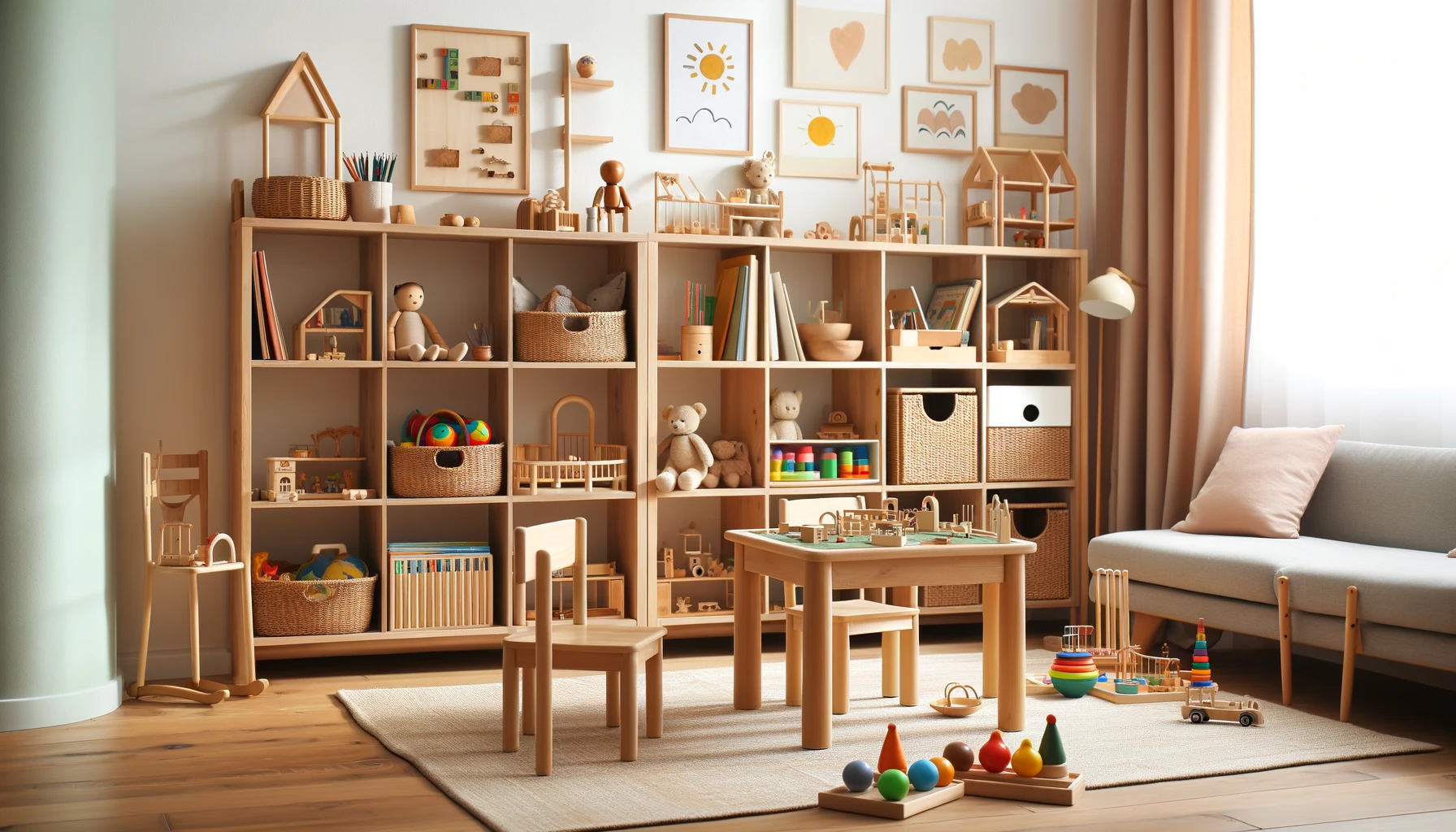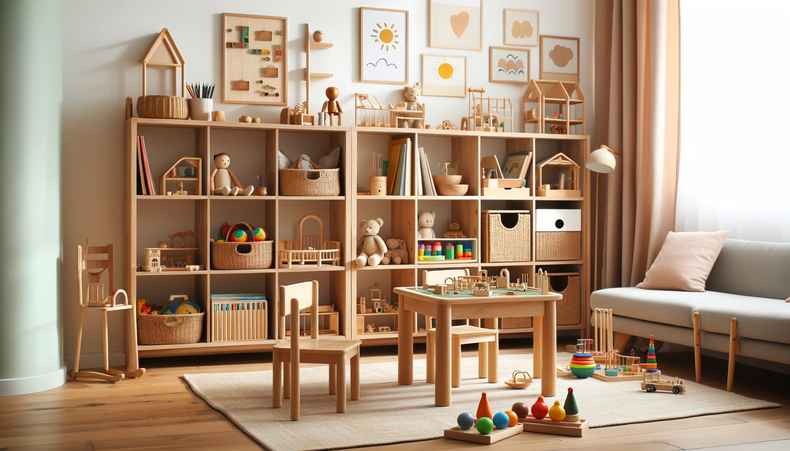
Montessori education, a respected approach developed by Dr. Maria Montessori is not confined to the classroom. Its principles can be integrated into your home, providing a continuous and supportive learning environment for your child. This blog explores how to bring Montessori into your home, creating spaces that encourage order, independence, and self-motivation.
The Prepared Environment The cornerstone of the Montessori method is creating a prepared environment. This involves organizing your home in a way that is child-friendly and encourages children to develop competence in caring for themselves and their surroundings.
- Getting Organized: Ensure everything has a place accessible to children. This organization helps minimize distractions and promotes focus.
- Simplifying Your Home: Simplify your home to make it easier for your child to engage and participate. Limit toy choices and use open shelves for easy access and return of items. Rotate toys to keep the environment fresh and interesting.
Practical Examples:
- The Bedroom: Design bedrooms to be clutter-free with clearly designated areas for rest, self-care, and dressing. Use child-sized furniture and limited clothing choices to foster independence and decision-making.
- The Kitchen: Involve children in the kitchen. Use low shelves for groceries, child-sized tables and chairs, and real kitchen utensils adapted to their size. This promotes involvement in meal preparation and fosters autonomy.
The Montessori Parent: Your Role As a Montessori parent, your role is crucial in supporting your child’s development at home.
- Observe: Spend time observing your child’s interactions with the environment. Adjust the surroundings based on their interests and abilities.
- Model, Invite & Practice: Demonstrate and practice household tasks with your children. From sorting laundry to meal preparation, involve them in everyday activities.
- Engage: Use handouts or resources to understand and support your child’s developmental stages, from infancy through adolescence.
- Adapt: Modify the environment and involve older children in decision-making to ensure their success and interest.
- Practice Real-Life Skills: Encourage children to participate in real-life tasks, like preparing meals, caring for pets, and managing theirn own bank accounts. This not only teaches practical skills but also instills a sense of responsibility and community.
- Nurture Inner Motivation: Rather than relying on external rewards, focus on nurturing an inner drive in your children. Appreciate their efforts, which helps build intrinsic motivation and a sense of accomplishment.
Implementing Montessori Principles in Daily Life Implementing Montessori at home goes beyond physical organization. It's about incorporating its philosophy into your daily interactions and routines.
- Empower Through Choice: Allow your children to make choices in their daily activities. This could be as simple as choosing their clothes or deciding on a weekend activity.
- Fostering Independence: Encourage your children to perform tasks independently, whether it’s dressing themselves, preparing a simple meal, or organizing their play area.
- Creating Learning Opportunities: Every moment can be a learning opportunity. Engage your children in activities like gardening, baking, or even grocery shopping, turning these into educational experiences.
- Peace Education: Montessori emphasizes peace and respect for all. Include activities that teach empathy, conflict resolution, and respect for diversity.
- Collaborative Family Activities: Involve your children in family decisions and responsibilities. This could include planning a family trip, discussing the weekly menu, or organizing a family game night.
Incorporating Montessori at home bridges the gap between school and life, providing a consistent and holistic approach to your child’s development. It’s about creating an environment that respects and nurtures their natural growth, promoting a lifelong love for learning. By following these principles, you can create a supportive and enriching home environment that mirrors the Montessori philosophy.

